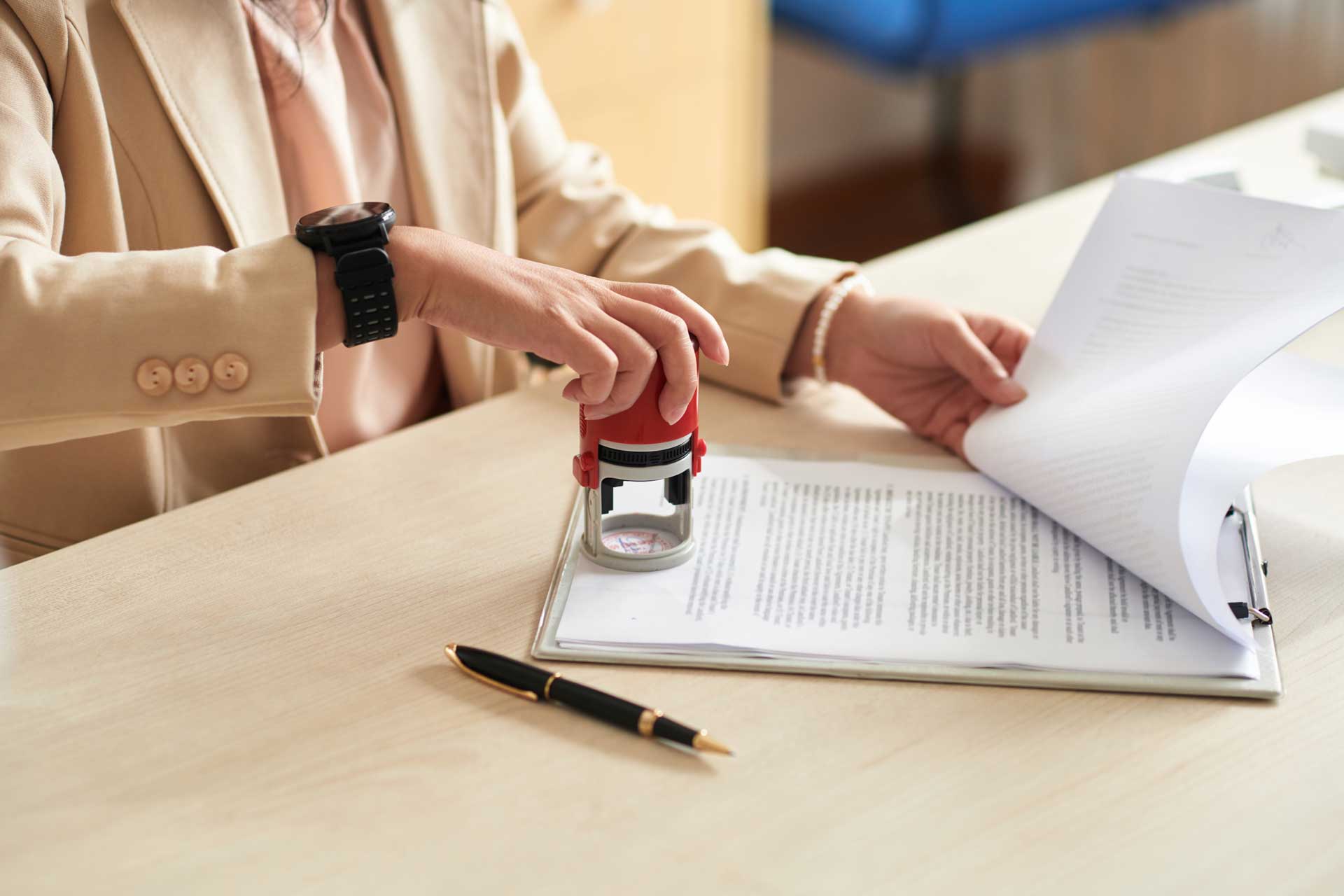
Being a mobile notary offers flexibility and business growth opportunities but comes with unique risks. Since mobile notaries often meet clients in unfamiliar locations, personal security should always be a priority.
This guide provides practical safety measures, including client screening, selecting secure meeting spots, using tracking apps, and other precautionary steps to minimize risks while conducting notarizations.
Unlike office-based notaries, mobile notaries travel to clients and frequently work alone. While most appointments are straightforward, there are potential security concerns that should not be ignored. Awareness of these risks allows notaries to take the necessary precautions before heading to an assignment.
By recognizing these risks and following proactive safety measures, mobile notaries can protect themselves while maintaining professionalism.
Before confirming an appointment, gather key details about the signer and location. This step ensures that the client is legitimate and that the area is safe to visit. If something feels suspicious or the client is unwilling to provide details, reconsider accepting the job.
| Client Information to Verify | Why It’s Important |
|---|---|
| Full name and contact details. | Ensures legitimacy and prevents fraud. |
| Type of document needing notarization. | Helps prepare and recognize red flags. |
| Meeting location (public or private). | Determines potential security risks. |
| Who will be present at the signing? | Avoids unexpected situations with unknown individuals. |
| How they found your notary service? | Identifies if they are referred or a random caller. |
If a client refuses to provide necessary information or behaves suspiciously, consider declining the appointment.
Where you meet clients directly impacts your safety. Public spaces with high foot traffic and security are ideal, while private homes and unfamiliar locations should be carefully evaluated before proceeding. If the area feels unsafe, suggest an alternative meeting place.
If a client insists on a home visit, schedule it during daylight hours and inform a trusted contact of your location.
Technology can be a valuable tool in improving personal safety during mobile notary appointments. Using tracking apps allows someone to monitor your location in real-time, providing an added layer of security in case of emergencies.
| Tracking App | Purpose |
|---|---|
| Google Maps | Share live location with a trusted contact. |
| Life360 | Real-time location tracking and emergency alerts. |
| Noonlight | Silent emergency calls to law enforcement. |
| Find My iPhone / Android Device Manager | Helps recover lost or stolen devices. |
Best Practice: Share your location with a friend or family before an appointment.
A notary’s tools must always be safeguarded, including their seal, journal, and documents. Losing your notary stamp or allowing unauthorized access to your journal could lead to fraud or misuse, putting you and your clients at risk.
If your notary stamp or journal is lost or stolen, report it immediately to the Secretary of State (or relevant notary commission) to prevent fraudulent activity.
How you arrive and leave an appointment plays a significant role in your safety. Always be mindful of your surroundings and have an exit strategy if you feel uncomfortable.
While most notarizations are routine, some signers may be fraudulent, unprepared, or confrontational. Recognizing red flags early can prevent dangerous encounters. If you ever feel unsafe during an appointment, leave immediately and report the incident if necessary.
| Red Flag | How to Respond |
|---|---|
| The signer lacks valid identification. | Refuse the notarization. |
| The signer appears confused or coerced. | Stop the process and document the incident. |
| The signer asks you to notarize a blank document. | Decline immediately—this could indicate fraud. |
| The client becomes aggressive or threatening. | Exit immediately and contact authorities if needed. |
Best Practice: If a client pressures you to ignore legal requirements, refuse the notarization.
Taking small precautions before, during, and after a notary appointment can significantly improve your safety. Simple habits like checking in with someone before heading to a job or choosing well-lit parking can make a big difference in ensuring a secure workday.
| Safety Measure | Why It’s Important |
|---|---|
| Screen clients before confirming appointments. | Identifies potential risks. |
| Choose well-lit, public meeting locations. | Reduces personal security concerns. |
| Share your location with a trusted contact. | Provides emergency backup. |
| Keep notary supplies in a locked case. | Prevents theft and unauthorized access. |
| Trust your instincts and decline unsafe requests. | Protects your well-being. |
Staying safe as a mobile notary requires planning, awareness, and precautionary measures. By screening clients, choosing secure meeting locations, using tracking apps, and trusting your instincts, you can operate confidently while ensuring your security.
Mobile notaries can successfully serve clients without unnecessary risks by prioritizing personal safety.
For additional security resources, visit the Notary Public Association.
Disclaimer: All information provided by Notary Public Association is for educational purposes only and is not intended as legal advice. Notary Public Association makes no representations or warranties as to the accuracy, completeness, or applicability of the information provided and assumes no liability for any actions taken in reliance on it. Always consult a licensed attorney or your local commissioning authority for guidance specific to your notary responsibilities and jurisdiction.
Stay informed with our latest updates, tips, and exclusive offers – subscribe now!